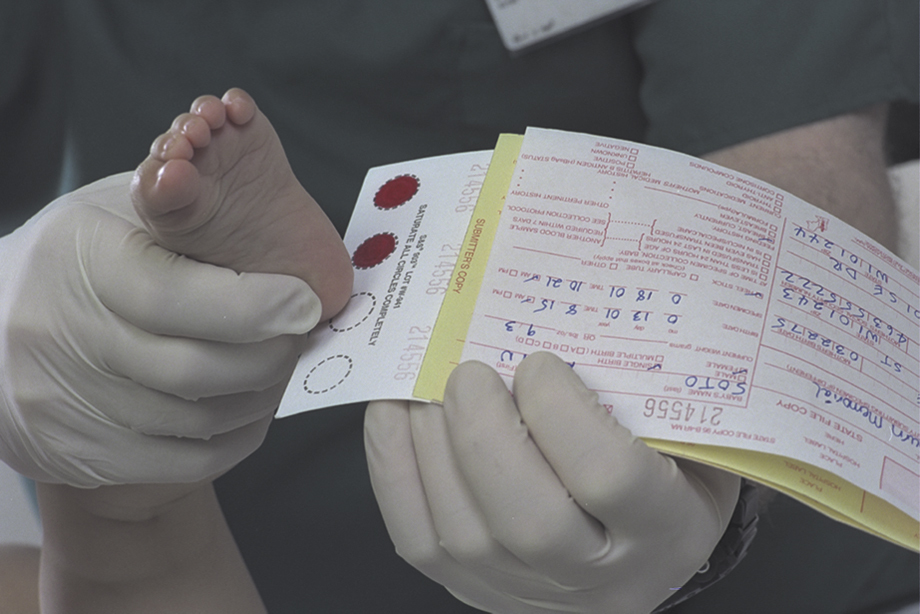Guthrie’s bacterial inhibition assay (GBIA) /guth″rēz/ , a screening for phenylketonuria (PKU) used to detect the abnormal presence of phenylalanine metabolites in the blood. A small amount of blood is obtained and placed in a medium with a strain of Bacillus subtilis, a bacterium that cannot grow without phenylalanine. If phenylalanine metabolites are present, the bacteria reproduce, and the test result is positive, indicating that the patient has phenylketonuria. Routine screening of newborns for PKU is now mandatory in most of the United States. The Guthrie blood test has normally been done before discharging the newborn from the hospital. However, it is important to note that this test is not valid until the newborn has ingested an ample amount (for 2 or 3 days) of the amino acid phenylalanine, which is a constituent of both human and cow’s milk. Also called Guthrie test. See also phenylketonuria.

